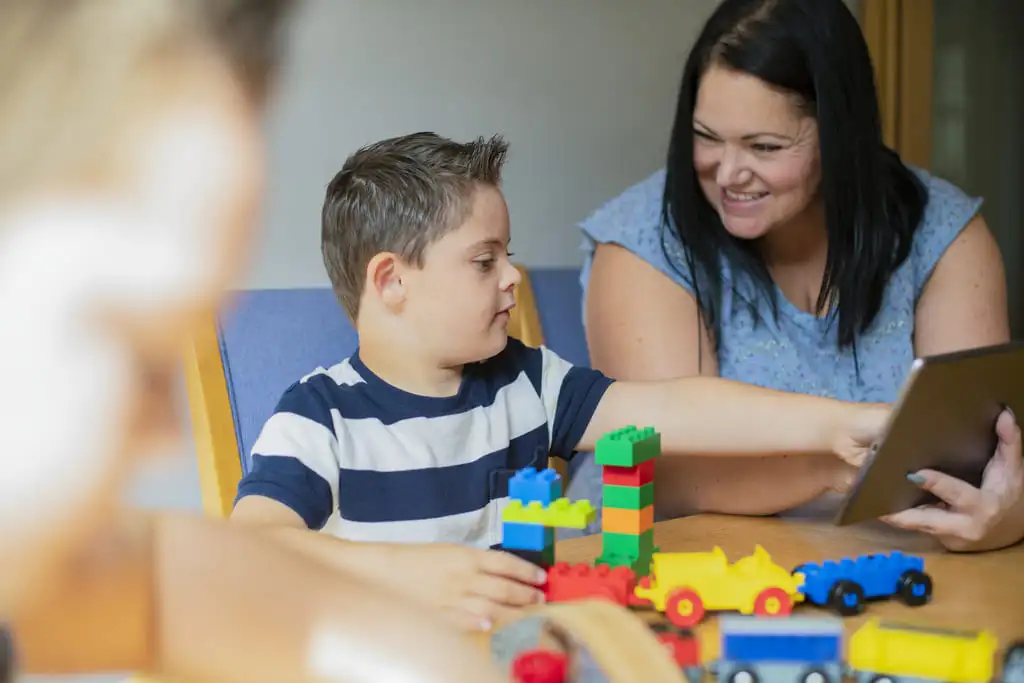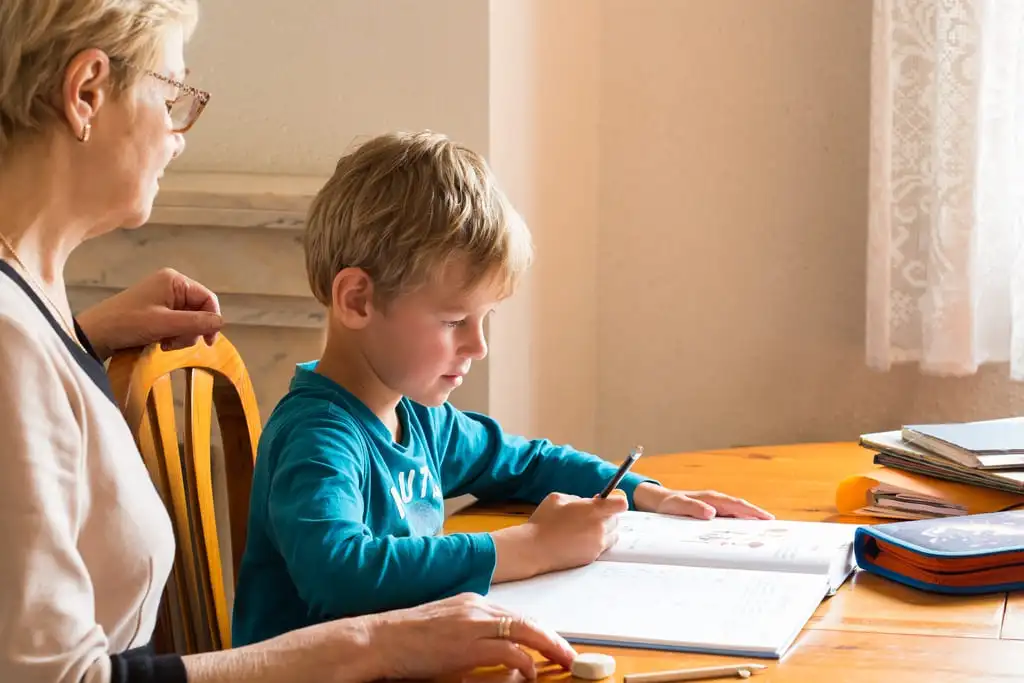Definition of Global Developmental Delay (GDD)
Global developmental delay (GDD) is a condition in which children experience delays in multiple areas of development, including cognitive, language, motor, social and emotional skills. These delays are more intense than typical developmental delays but are not considered developmental disorders.
Children with GDD may take longer to reach developmental milestones and may require additional bespoke care and support, and intervention to help them catch up to their peers. GDD is typically recognised in early childhood based on assessments of a child’s development and may be associated with various underlying causes, including genetic, environmental, or neurological factors.
Impact of Global Developmental Delay (GDD) on Learning

Children with global developmental delay may experience delays in cognitive development, including difficulties with memory, attention, and problem-solving skills, which can affect their ability to learn new information and concepts. It can also impact the development of language and communication skills, making it challenging for children to understand and use language effectively and hindering their ability to communicate and participate in classroom activities.
Additionally, global developmental delay can affect gross motor skills and fine motor skills, impacting their ability to participate in physical activities and manipulate objects, which are important for learning. Social and emotional development may also be affected by their ability to form relationships and regulate emotions, which are crucial for learning and development.
Leaf Complex Care has a highly trained therapy team with occupational therapists who can support children with GDD. Through task-specific training, visual supports, adaptive tools, sensory integration techniques and motor skills developmental strategies, they help children improve their motor skills, cognitive abilities, and daily functioning.
Cognitive Impact on Learning Abilities
Global developmental delay can affect cognitive skills, causing difficulties with memory recall. GDD can also impact a child’s ability to focus and keep attention, making it challenging to engage in tasks that require concentration, such as reading or completing assignments.
With the right care and support in place, support workers can help children experiencing cognitive delay through speech and language therapy. They can identify solutions and help children understand challenging concepts like math or science, manage their time more effectively, and complete tasks more independently.
Processing Speed and Memory Challenges
Processing speed and memory challenges lead to difficulties in daily functioning. This can affect a child’s ability to keep up with classroom instruction, follow conversations, and complete tasks promptly. Slow processing speed can also impact their ability to respond quickly in social situations, leading to difficulties in social interactions.
Additionally, children with global developmental delays may experience challenges with long-term memory, which can affect their ability to retain and recall information over time. This can impact their learning in subjects that require retrieving previously learned information, such as reading comprehension and math problem-solving.
Impact on Problem-Solving Skills
Global developmental delay and other developmental disabilities can impact children’s problem-solving skills. Children may have difficulty processing information and interpreting social cues, affecting their ability to understand challenging situations and develop solutions. They may need help to break down complex problems into smaller, more manageable parts and may have difficulty thinking abstractly.
Additionally, the social skills affected by global developmental delay can impact problem-solving. Children with GDD may find it challenging to collaborate with others or seek help when needed, which can create difficulty in their ability to solve problems effectively.
Supporting children with GDD to develop problem-solving skills often requires extra support and tailored interventions. This may include breaking down challenges into simpler steps, providing visual aids or cues, and teaching specific problem-solving strategies. It’s also important to provide opportunities for children to practice these skills in real-life situations and to reinforce their efforts and progress.
Specific Learning Challenges Associated with GDD
While every child is unique and may experience GDD differently, some common specific learning challenges are associated with this condition that parents, caregivers, and educators should be aware of.
Language and Communication Difficulties
Language and communication difficulties can manifest in various ways, including delays in speech and language milestones, limited vocabulary, and difficulty understanding and using language. Children with GDD may have trouble expressing their thoughts and ideas, leading to frustration and behavioural concerns. Their speech may also be impacted, making it challenging to communicate effectively with others.

Despite their challenges, children with a global developmental delay often demonstrate resilience and progress in their language and communication skills with appropriate support and intervention. Many children show improvements in their ability to understand and use language over time, and some children even catch up to their peers.
Motor Skills Delay
Experiencing delays in motor skills means both gross and fine motor skills are impacted. Fine motor skills involve using small muscles, such as hands and fingers, while gross motor skills include using larger muscles in the legs and arms. Children with global developmental delay may have difficulties with tasks such as grasping objects, holding utensils, or using scissors (fine motor skills) and with activities like running, jumping, or climbing stairs (gross motor skills).
Despite these challenges, it’s important to note that children can make progress in their motor skills with the right support and interventions. Occupational therapy and physical therapy can include exercises and activities designed to strengthen muscles, improve coordination, and enhance overall motor function. With consistent therapy and support, children can improve their motor skills and gain more independence in their daily activities.
Academic challenges
А child with GDD may struggle with reading due to challenges in phonemic awareness and decoding skills. They may need help to write coherently, as their fine motor skills may be delayed, affecting their ability to form letters. Despite these challenges, it’s essential to recognise the strengths and potential of children with global developmental delays. With the right support, children can make progress and succeed academically.
For example, with close collaboration with our support workers, Leaf Complex Care’s therapy team can provide individualised support that focuses on a child’s strengths and uses multi-sensory approaches to learning. They can also use visual aids, repetition, and hands-on activities to help reinforce concepts. Parents and caregivers can also create a supportive home environment that encourages learning and provides practice opportunities. Children can overcome academic challenges and reach their full potential by focusing on the child’s abilities and providing the necessary support.
Emotional and Social Implications
Emotional implications may include frustration, anxiety, and low self-esteem. Children often become frustrated when they struggle to keep up with their peers academically or have difficulty communicating or expressing themselves. This frustration can lead to feelings of anxiety and can impact their overall emotional well-being. Additionally, children with GDD may experience low self-esteem, especially if they are aware of their developmental delays and feel different from their peers.
Emotional Regulation Challenges
Emotional regulation challenges in children with global developmental delays can manifest in various ways, often due to difficulties understanding and managing their emotions. These challenges can include:
- Difficulty Recognising Emotions
- Difficulty Regulating Intense Emotions
- Limited Coping Strategies
- Difficulty Understanding Social Cues
- Impact on Relationships
Supporting children in developing emotional regulation skills involves providing them with strategies and tools to identify, understand, and manage their emotions.
Social Interactions Challenges
Social challenges can manifest in various ways, including difficulty understanding social cues such as facial expressions, body language, and tone of voice. As a result, children may need help interpreting others’ emotions and intentions, leading to misunderstandings in social situations.
Another challenge is difficulty in initiating and maintaining conversations. Children with a global developmental delay often find it hard to start conversations or keep them going, which can affect their ability to form and maintain friendships. They may also need help understanding social norms and rules, such as taking turns or sharing, which can lead to peer conflicts.
Additionally, children may have challenges with imaginative play and engaging in pretend play scenarios. This can make it challenging for them to participate in group activities or games that require social imagination and creativity.
Early Intervention and Educational Strategies
Early intervention with Leaf Complex Care is tailored to meet each individual’s unique needs. It involves a multidisciplinary team of highly trained specialists, including language and speech therapists, occupational therapists, and PBS practitioners. Our teams work together to assess the child’s strengths and areas of need and develop a personalised intervention plan.
One key benefit of early intervention is that it can help address developmental delays before they become more significant. By identifying and addressing delays early, children can make substantial progress in their development and improve their overall quality of life. Early intervention can also help children develop essential skills, such as communication, socialisation, and self-care, necessary for success in school and later life.

Educational strategies complement early intervention for children with a global developmental delay. These strategies are designed to help children develop academic and social skills in a supportive and structured environment. One practical approach that we use is a visual schedule or aids to help children understand routines and expectations. This can help reduce anxiety and improve their ability to follow directions. Another strategy is to break tasks into smaller, more manageable steps to help children build confidence and avoid feeling overwhelmed. Additionally, positive reinforcement can help motivate children and build their self-esteem.
Optimising Learning Environments for Individuals with GDD
Leaf Complex Care creates learning environments for individuals by providing tailored and comprehensive support and play that addresses their needs. One key aspect of this approach is the use of Positive Behaviour Support (PBS), which focuses on understanding the individual’s behaviour and its underlying reasons. By identifying the triggers and functions of behaviour and the role of play in global developmental delay, our support workers create strategies to promote positive behaviours and reduce challenging ones, creating a more conducive learning environment.
Additionally, we use a strengths-based approach, focusing on the individual’s abilities and interests rather than solely on their challenges. This approach helps build confidence and self-esteem, which are essential for learning and development. By incorporating the individual’s strengths into the learning environment, such as through personalised learning activities or their interests into lessons, Leaf Complex Care can create a more humanised care journey focused on positive outcomes for the individuals we support.
Importance of Awareness of The Impact of GDD on Learning
Leaf Complex Care creates learning environments for individuals by providing tailored and comprehensive support and play that addresses their needs. One key aspect of this approach is the use of Positive Behaviour Support (PBS), which focuses on understanding the individual’s behaviour and its underlying reasons. By identifying the triggers and functions of behaviour and the role of play in global developmental delay, our support workers create strategies to promote positive behaviours and reduce challenging ones, creating a more conducive learning environment.
Additionally, we use a strengths-based approach, focusing on the individual’s abilities and interests rather than solely on their challenges. This approach helps build confidence and self-esteem, which are essential for learning and development. By incorporating the individual’s strengths into the learning environment, such as through personalised learning activities or their interests into lessons, Leaf Complex Care can create a more humanised care journey focused on positive outcomes for the individuals we support.
GDD Support with Leaf Complex Care
Leaf Complex Care supports people’s unique needs and preferences and tailors approaches to help individuals live life on their own terms. We love it when the families of the people we support say that the individual feels fully supported and understood and gradually works towards their goals with our support workers.
Richard is one of the individuals we serve who experience global developmental delay, autism and ADHD. By prioritising Richard’s needs and striving for the best outcomes possible, we have nurtured these strengths collaboratively and established an environment that empowers him to live more independently.
”Leaf came along, and this was the first time someone actually asked what we needed, which was refreshing and gave me new hope. Leaf did the assessment, and the people they sent turned out to be more experienced.“says Richard’s father.
To read the full story of Richard’s care journey, please click here.
Contact us today to learn more about our support services. We deliver our care and support throughout the UK, with offices in Bristol, Slough, Birmingham and Somerset.
Leaf Complex Care is committed to meeting the principles of delivering the right support, the right care and the right culture, promoting people’s Human Rights and dignity.


















